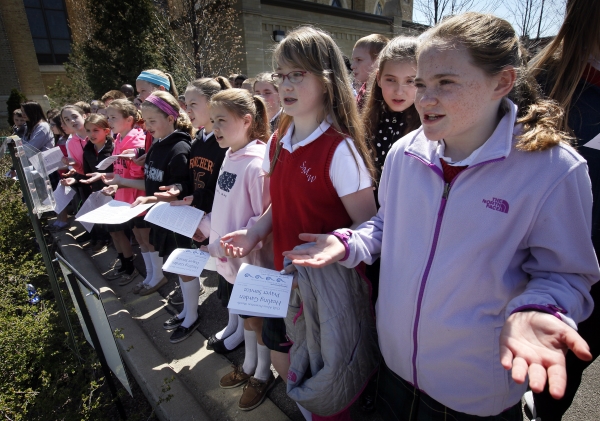VATICAN CITY (CNS) — A New Zealand member of the Pontifical Commission for the Protection of Minors has said the Church needs to listen better to victims of sexual abuse.

Bill Kilgallon
Bill Kilgallon, the director of the National Office for Professional Standards in this country, was among members of the commission who met Pope Francis at the Vatican on September 21.
Mr Kilgallon told the Catholic News Service that the Church needs to listen better to victims of abuse and it must be clear, firm and honest in proving that abuse has no place in its institutions.
Protecting children is not only central to Christ’s teachings, but “you can’t give people their childhood back. We get only one chance”, he said.
Mr Kilgallon added that as the commission helps advise dioceses, bishops’ conferences and religious orders about best practices and good guidelines, “those churches which have good structures and good safeguarding arrangements, the risk is that they become complacent”.
It is vital these countries keep “renewing and reviewing” their policies and practices, especially with external audits, he said.
“We know what you need for a safe environment,” he said, but the problems are: convincing countries that are struggling because of a lack of information, resources or personnel to reach out for help; getting information to everyone, including parents and children; and convincing those with guidelines in place that they need to be coupled with real action.
The CNS story reported that more than 200 workshops or seminars have been held all over the world, including at the Vatican, seeking to raise awareness about the crime of sexual abuse against minors and vulnerable adults, and the Church’s duty to educate, train and protect its members.
But commission members acknowledge that more needs to be done. On September 21, Pope Francis had his first face-to-face discussion with members of the commission that was formed in 2014 and, during the meeting, members summarised the work they have accomplished and detailed a number of recommendations, including regarding the invocation of “pontifical secret” during abuse investigations and trials.
Vatican norms maintain the imposition of “pontifical secret” on the Church’s judicial handling of clerical sex abuse and other grave crimes, which means they are dealt with in strict confidentiality.
Vatican experts said it was designed to protect the dignity of everyone involved, including the victim, the accused, their families and their communities.
Confidentiality, however, is meant to have limits in the relationship with civil authorities as bishops are required to comply with civil law that requires reporting of abuse accusations.
Experts on the 15-member commission have called for a new look at how the principles regarding “pontifical secret” are applied during canonical processes and see where canon law may impede the reporting of suspected child abuse to civil authorities.
The same experts also called for exempting cases that involve “sexual delicts” and crimes against minors from those norms governing pontifical secret.
Other major initiatives the Pope’s advisory body suggested included:
• During the canonical process looking into alleged abuse, involve professional lay experts in the preliminary investigation and establish a minimum right to information for victims.
• Amend Vatican norms on procedures for handling priests accused of abusing minors to eliminate the statute of limitations on accusations of sexual abuse, which currently is set at 20 years after the alleged victim’s 18th birthday.
• Conduct in-depth research to study paedophilia and its canonical implications for marriage, holy orders and religious profession; study a proposal to declare paedophilia an impediment to receiving the sacraments of holy orders and matrimony.
• Create an international survivor advisory panel to actively inform and help the commission maintain a victim first approach.
• Adopt the commission’s recommendations for Vatican offices, bishops’ conferences and religious superiors on appropriately responding to correspondence from survivors.
• Continue to endorse a dedicated Day of Prayer and Penance in the Church as part of showing solidarity with survivors, acknowledging sins that have occurred and asking for forgiveness and healing.
Pope Francis thanked members for their work as expert advisers and for giving him recommendations on the best ways to protect minors and vulnerable adults.

Reader Interactions